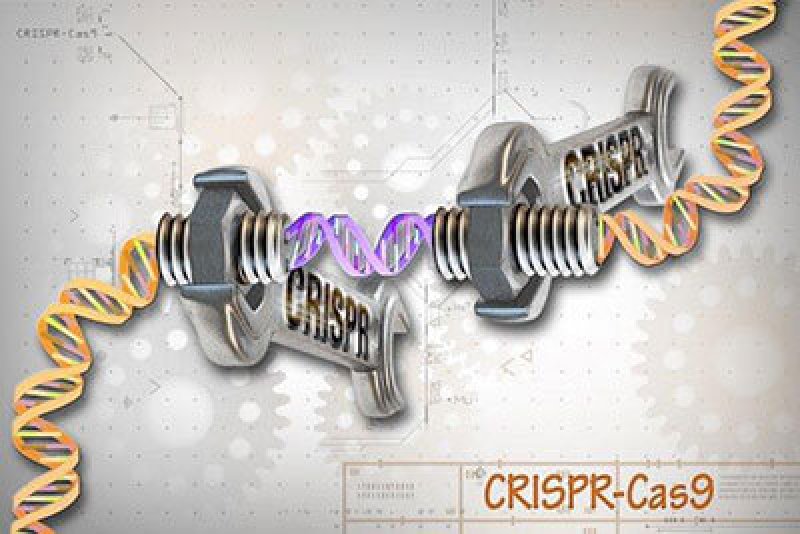In the wake of a study showing that gene-editing of human embryos was possible and (somewhat) successful using CRISPR/Cas-9 process, the research has come under considerable scrutiny. Now experts in the field are actively questioning whether the CRISPR technology is far enough along to use human embryos and moving to develop a formal ethical framework to self-police the field.
Ten days after the Chinese study was published, the U.S. National Institutes of Health issued a statement prohibiting its funds from being used for human embryo editing because of the ethical ambiguity:
The concept of altering the human germline in embryos for clinical purposes has been debated over many years from many different perspectives, and has been viewed almost universally as a line that should not be crossed. Advances in technology have given us an elegant new way of carrying out genome editing, but the strong arguments against engaging in this activity remain.
NIH Director Francis Collins listed unknown safety issues and lack of consent from future generations that would be effected by this technology as reasons for this funding moratorium. The genetic changes made via CRISPR would likely be passed on to any future children of a person who had used genetic editing.
And other experts in the field have expressed their concerns simply because the technology is still so new there is much basic research to be done using animal models. Berkeley biologist Jennifer Doudna, who is currently involved in a patent dispute over the discovery of CRISPR, told Science that the human embryo editing paper was designed to “attract attention.” Duodenal and many of her colleagues and collaborators are trying to create an ethical framework that will guide the use of CRISPR in human applications.
But the move to make a ‘gentleman’s agreement’ among some of the researchers exploring CRISPR applications is itself controversial, if well intentioned. There is no guarantee that all research groups will adhere, even if some funding sources like the NIH are made unavailable. And, in the likely case that this research continues in other countries, will Western scientists be missing out on the chance to ask some really powerful questions about human development? UK stem cell scientist Robin Lovell-Badge thinks so:
I disagree with such a moratorium, which is in any case unlikely to be effective. I am fully supportive of research being carried out on early human embryos in vitro, especially on embryos that are not required for reproduction and would otherwise be discarded. If the techniques work, there are many interesting questions that could be asked about the role of specific genes in early human embryo development…While we work towards using the methods to make disease-resistant crops and animals, should we deny this possibility for humans? There is a need for caution, but also for reasoned and well-informed debate.
The issue is a vibrant example of how difficult it can be to find the ethical consensus in a situation where a technology is developing so rapidly it easily outpaces the moral imaginations of society at large and even the excerpts working within the field. The controversial CRISPR study aimed to eliminate a disease-causing gene in defunct embryos that would never develop because of other abnormalities. At its heart, the goal was a medical therapy to stop disease before it develops. There will likely come a time when prohibiting clinical applications of CRISPR may itself be immoral because it will deny sick people cures for disease.
Days after the study was published Harvard biologist George Church said he thought CRISPR editing of humans could happen in as little as five years if everything went smoothly with the research. It’s impossible to know how a self-imposed ban on embryo testing might affect that time line or what happens if only some scientists in some parts of the world adhere. Human embryos are tricky and notoriously difficult to work with. Even well-established procedures like IVF only work half of the time. So decades of research may be needed before procedures and protocols are routine enough to get gene editing out of the lab and into a clinic.
Speculation abounds that more human embryo CRISPR papers are coming down the pipeline this year. The controversy is unlikely to die down any time soon. Its clear that US and UK-based scientists are thinking cautiously about the technology. But everyone is eyeing China to watch how researchers there react.
Meredith Knight is a contributor to the human genetics section for Genetic Literacy Project and a freelance science and health writer in Austin, Texas. Follow her @meremereknight.
Additional Resources:
- Ethical and science conundrum: Did reporters, scientists miss nuances of embryo gene-editing story? Genetic Literacy Project
- Human germline editing debate needs public discourse more than moratorium, Biopolitical Times
- Ethical ‘decision day’: How should we regulate ‘gene editing’ of humans? Genetic Literacy Project































